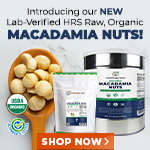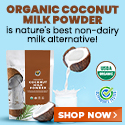Beware of cancer-causing ingredients in many sunscreens
Monday, August 29, 2016 by: David Gutierrez, staff writer
Tags: sunscreen ingredients, cancer chemicals, vitamin D

(NaturalNews) Although sunscreens are promoted as the best way to protect yourself against skin cancer, the FDA has admitted that it is "not aware of data demonstrating that sunscreen use alone helps prevent skin cancer." In fact, many of the toxic chemicals found in sunscreens have actually been shown to increase skin cancer risk!
Adding insult to injury, it turns out that many chemical sunscreens don't even protect your body from the damaging effects of ultraviolet (UV) radiation. That's because many chemical ingredients act by physically filtering out UV radiation, and therefore are effective only while sitting on the surface of the skin. But the chemical formulations of many sunscreens cause the active ingredients to be rapidly absorbed into the skin's lower layers, where they are just as toxic but provide little or no sun protection.
Why would you poison your skin?
Even the most innocuous-seeming sunscreen ingredients may be dangerous. For example, retinyl palmitate, which contains vitamin A, is supposedly included in sunscreens as an antioxidant. Yet lab studies have shown that when exposed to sunlight, retinyl palmitate forms free radicals that have the opposite effect, damaging rather than protecting cells and DNA. Vitamin A itself has even been shown to stimulate excessive growth of skin cells.Other common but toxic sunscreen ingredients include: avobenzone, benzophenoones (dioxybenzone, oxybenzone), cinnamates, digalloyl trioleate, homosalate, menthyl anthranilate, methylchloroisothiazolinone (MCI), octinoxate, octisalate, PABA esters and salicylates.
All of these chemicals have been shown to generate free radicals in the body, producing oxidative stress that can lead to cancer. Many of them are also estrogen mimics, capable of causing dangerous and systemic changes to the body. Some have also been implicated in causing other forms of hormone disruption, reproductive abnormalities, behavioral changes and allergies.
An often overlooked risk of toxic sunscreen chemicals – indeed, toxic chemicals in any skin lotion – is the way that they devastate the natural and protective microbiome of the skin. Human skin naturally hosts a diverse community of microbes that help maintain our health; slathering the skin with poison dramatically shifts the balance and places skin health at risk.
Nourish your skin instead
Ironically, one of the best ways to protect your skin from cancer may be to ditch the sunscreen and get more natural sunlight on your skin. That's because exposure to UV radiation from sunlight causes your body to produce vitamin D, a hormone precursor that plays a critical role in cancer prevention. Vitamin D also helps prevent autoimmune diseases, infection and inflammatory diseases such as cardiovascular disease.Studies have shown that people who use more sunscreen actually have higher rates of melanoma, the most lethal form of skin cancer. Additionally, melanoma patients with higher rates of sun exposure are actually more likely to survive the disease, not less, and are less likely to develop aggressive forms of the disease. Vitamin D may partially explain these surprising findings.
To get enough vitamin D, light-skinned people should get 15–20 minutes of sun exposure over about 60 percent of the body each day (this way your body stores up vitamin D in the summer to use in the winter). People with very dark skin may need as much as 45 minutes of daily exposure.
But what if you have skin that is highly prone to burning? You can protect yourself with protective hats and clothing, as recommended by the International Agency for Research on Cancer. You can also apply non-nanotech zinc oxide to your skin as a physical barrier. Tropical oils such as shea butter, coconut, eucalyptus, or aloe vera can be applied directly to the skin both before and after sun exposure to nourish it and boost its natural resistance to burning. These oils also help encourage a healthy skin microbiome.
Don't overlook the importance of a diet rich in antioxidants, which is one of the best ways to prevent all types of cancer. Foods especially high in skin-protecting antioxidants include carrots, fresh juices, spirulina and other algae, and any foods high in vitamin C.
Sources for this article include:
TheTruthAboutCancer.com
Sunscreen ingredients at FETCH.news
Get independent news alerts on natural cures, food lab tests, cannabis medicine, science, robotics, drones, privacy and more.
Take Action: Support Natural News by linking to this article from your website
Permalink to this article:
Embed article link: (copy HTML code below):
Reprinting this article:
Non-commercial use OK, cite NaturalNews.com with clickable link.
Follow Natural News on Facebook, Twitter, Google Plus, and Pinterest
- Newly released JFK files reveal Pentagon's role in creating Lyme disease and covid in the same lab
- Trump's greatest betrayal so far: Accelerating Middle East wars, silencing dissent, and serving Zionist masters
- The hidden dangers in your kitchen: How cooking methods impact diabetes, cancer and aging
- STARDUST, a secretive Israeli-US startup, plans risky solar geoengineering experiment to BLOCK OUT THE SUN
- DEADLY DECEPTION: How COVID vaccines increased mortality rates and why authorities hid the truth
- Arkansas embraces medical freedom with landmark ivermectin law
- CDC finally halts $11 billion COVID funding scam as health officials admit the ‘pandemic’ was a fraud
- Lab leak confirmed? Boris Johnson's stunning reversal on COVID origins sparks global debate
- Home gardening for preppers: A beginner's guide to growing your own food
- GAIN-OF-FUNCTION CAT-BIRD-FLU now on the rise as nearly a dozen cats in Colorado "test positive" for Bird Flu due to contaminated cat food
- Unraveling the paradox: Why intelligent individuals fall prey to everyday blunders
- YouTube’s double standard: CEO defends censorship while claiming free speech champion status
- Cartels shift tactics: Kidnappings and organ trafficking surge as border crossings plummet under Trump policies
- “Feel G.O.O.D. Gut Health Program” on BrightU: Why elimination diet is good for you
- Why you should think twice before buying mainstream toothpaste formulas
- “Rent-a-womb” scandal: How China is exploiting U.S. birthright citizenship for long-term espionage
- Was JFK's assassination orchestrated by a CIA double agent? New evidence points to James Angleton as the “architect”
- Record honeybee deaths devastate U.S. agriculture, pesticides under scrutiny
- Newly released JFK files reveal Pentagon's role in creating Lyme disease and covid in the same lab
- Elon Musk: Aliens could be here on Earth RIGHT NOW
- Festive flavors: The sweet history, nutritional profile and health benefits of pecan pie
- Trump reverses course on Gaza plan, says “nobody is expelling Palestinians”
- Reclaim your health: How midlife exercise reverses years of inactivity
- Big Pharma's $8 Billion bribery scheme exposed: how doctors are pushed to prescribe junk science, not heal
- Boys are back in town: Trump’s patriotic alpha crew takes the wheel while toxic females ride in the backseat
- EPA advisor admits the agency is funneling billions to climate groups ahead of Trump’s return to White House
- Space war brewing? Russia threatens to destroy Starlink satellites
- Survival 101: Effective EMF blocking techniques
- A lack of integrity in Academia: Harvard professor found GUILTY of fraudulent research to promote CRT theory
- Mike Adams Sermon 66: God will DESTROY ISRAEL for its wickedness
- 5 Simple steps to boost your brainpower: How to strengthen executive function in a distracted world
- Rep. Nancy Mace introduces bill to ban biological males from female facilities on federal property
- Sugarcane extract superior to cholesterol-lowering drugs?
- WHO focusing more on policing speech about public health and implementing global surveillance systems
- Pilots report mysterious lights 'moving at extreme speeds' across Oregon skies
- Dr. Mike Yeadon releases 15-minute testimony - WATCH - about genocidal intent of COVID “vaccines”
- EPA advisor admits the agency is funneling billions to climate groups ahead of Trump’s return to White House
- The Health Ranger releases “Vaccine Zombie” song and music video, using AI-animated zombies for the music video
- California's social media censorship law struck down: A victory for free speech or a threat to online safety?
- Dr. Mike Yeadon releases 15-minute testimony - WATCH - about genocidal intent of COVID “vaccines”
- The pandemic as a tool for INDOCTRINATION: Understanding “The Indoctrinated Brain” by Dr. Michael Nehls
- Florida takes a stand: DeSantis proposes permanent ban on mRNA vaccine mandates
- Mike Adams releases country western hit single: Goin’ Back in Time is Comin’ Home
- Mike Adams releases music poetry sensation: A Child of God
- “Why we influenced the 2020 elections”: Facebook files reveal the coordinated effort to bury the Hunter Biden laptop story
- RFK Jr. clears key hurdle: Sen. Susan Collins backs controversial HHS nominee, signaling a new era for health policy
- Unpacking the Lies That We’ve Been Fed – new song and music video released by Mike Adams, the Health Ranger
- Mike Adams releases new song and music video: Nothing More Disgusting Than a Globalist
- Newly released JFK files reveal Pentagon's role in creating Lyme disease and covid in the same lab
- Congratulations to the FULLY UNVACCINATED as you resisted the COVID-19 PROPAGANDA MACHINE fueled by over $100 BILLION
- Michigan sheriff announces criminal investigation into 2020 election crimes, Dominion Voting Systems
- Israeli soldiers accused of even more torture and abuse in the West Bank
- Migrants are taking advantage of recent hurricanes to scam residents and loot their homes
- House Intelligence Committee calls for the ARREST and PROSECUTION of Dr. Anthony Fauci
- Red Cross issues warning to stop blood plasma donations from vaccinated people
- Scientists confirm: GENIUS brain function can be spontaneously unleashed in humans without any apparent cause
- EPA advisor admits the agency is funneling billions to climate groups ahead of Trump’s return to White House
- HYSSOP: What research reveals about the health benefits of this ancient holy herb
- Two containers with completed ballots fall out of truck in Florida
- Fully vaccinated about to see “tsunami” of illness and death, warns virologist
- Global leaders unite to clamp down on “misinformation” with UN-backed Cascais Declaration
- BREAKING: 2025 NDAA authorizes mandatory military draft of WOMEN across America… as Pentagon pursues global NUCLEAR war with both Russia and China at the same time
- Michael Yon warns of a ZIONIST TAKEOVER in Trump’s second administration
- BOMBSHELL: DNA testing kits are a SCAM to develop ethnic-specific bioweapons
- Ozempic and Wegovy weight loss drugs are injectable LIZARD VENOM PEPTIDES that may unleash a devastating wave of organ failure… side effects align with symptoms of SNAKE BITES
- Israeli soldiers accused of even more torture and abuse in the West Bank
- These 13 countries just signed an agreement to engineer a global FAMINE by destroying food supply
- NASA admits that climate change occurs because of changes in Earth’s solar orbit, and NOT because of SUVs and fossil fuels
- RFK Jr. clears key hurdle: Sen. Susan Collins backs controversial HHS nominee, signaling a new era for health policy
- Sermon 30: How Jesus reveals Caesar’s FAKE CURRENCY and FALSE AUTHORITY
- Coriander seeds: Ancient medicine backed by modern science
- Arizona officials claim Maricopa County needs 10-13 days to tabulate results of the election
Science News & Studies
Medicine News and Information
Food News & Studies
Health News & Studies
Herbs News & Information
Pollution News & Studies
Cancer News & Studies
Climate News & Studies
Survival News & Information
Gear News & Information
News covering technology, stocks, hackers, and more



"Big Tech and mainstream media are constantly trying to silence the independent voices that dare to bring you the truth about toxic food ingredients, dangerous medications and the failed, fraudulent science of the profit-driven medical establishment.
Email is one of the best ways to make sure you stay informed, without the censorship of the tech giants (Google, Apple, Facebook, Twitter, YouTube, etc.). Stay informed and you'll even likely learn information that may help save your own life."
–The Health Ranger, Mike Adams












































